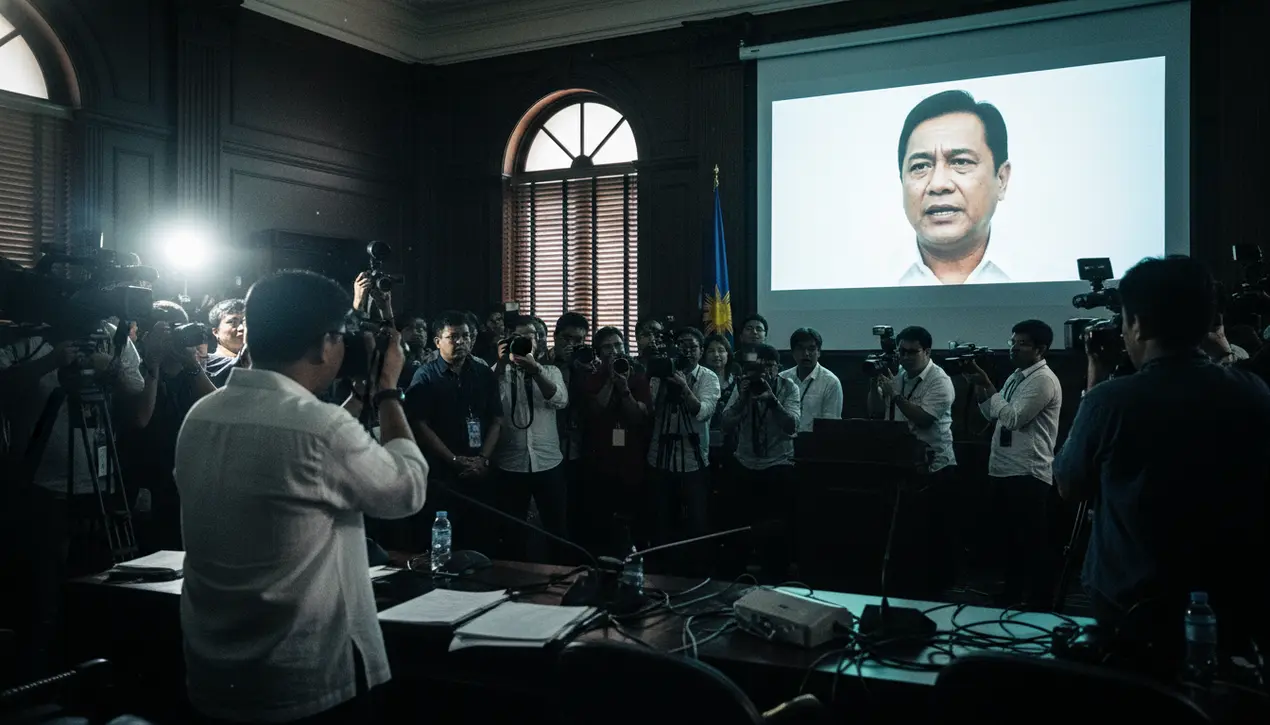
Politicscorruption & scandalsWhistleblower Reports
Ex-official accuses Marcos of ordering fraudulent budget projects.
RO
Robert Hayes
3 hours ago7 min read1 comments
The political landscape of the Philippines has been jolted by a severe accusation from a fugitive source, as former appropriations chairman Zaldy Co has publicly alleged that President Ferdinand Marcos Jnr directly instructed him to insert 100 billion pesos—approximately US$1. 7 billion—of questionable public works projects into the national budget.This claim, delivered via a video statement to reporters, does not merely represent another corruption allegation but serves as a critical escalation in a scandal that has persistently shadowed the Marcos administration for months, threatening to undermine its legitimacy and stability. The gravity of such an accusation, coming from a former insider with direct budgetary authority, invites immediate historical parallels to past Philippine administrations plagued by graft, recalling the era of Ferdinand Marcos Sr., whose regime was defined by widespread cronyism and allegations of plunder, thereby framing the current controversy within a troubling dynastic narrative. Analysts observing the situation suggest that this explosive allegation is more than a simple corruption exposé; it is a potent weapon in a broader, coordinated destabilization campaign being waged by rival political blocs, including factions aligned with the influential Duterte family, whose alliance with Marcos has shown significant strain.The strategic release of this video, bypassing traditional judicial channels, indicates a calculated move to court public opinion and media frenzy, a tactic reminiscent of political warfare seen in other nascent democracies where institutional trust is low. The specific mechanism of these alleged fraudulent insertions—often referred to locally as 'pork barrel' funds or budget allocations discreetly earmarked for lawmakers—has long been a contentious feature of Philippine governance, a system vulnerable to exploitation despite previous reform efforts.Should these allegations gain traction through subsequent congressional inquiries or a potential anti-graft investigation by the Ombudsman, the consequences could be profound: a severe erosion of investor confidence, a potential credit rating review that considers political risk, and significant legislative gridlock as opposing factions leverage the scandal for political advantage. The administration's response will be critically scrutinized; a dismissal of the claims as politically motivated may suffice in the short term, but if corroborating evidence emerges from the Commission on Audit or whistleblowers within the bureaucracy, it could trigger a constitutional crisis or even inspire mass public demonstrations akin to the People Power movements that have previously reshaped the nation's destiny.This scenario underscores a persistent vulnerability in the Philippine political system, where personalistic loyalties and clan rivalries often supersede institutional integrity, a pattern observed in other Southeast Asian nations but one with uniquely high stakes in a country with such a vibrant yet fractious democracy. The coming weeks will test not only the resilience of the Marcos presidency but also the strength of the country's democratic safeguards against the corrosive power of systemic corruption.
#lead focus news
#Philippines
#Ferdinand Marcos Jr
#corruption scandal
#budget fraud
#Zaldy Co
#political destabilization
#fugitive lawmaker
Stay Informed. Act Smarter.
Get weekly highlights, major headlines, and expert insights — then put your knowledge to work in our live prediction markets.
Comments
Loading comments...
© 2025 Outpoll Service LTD. All rights reserved.